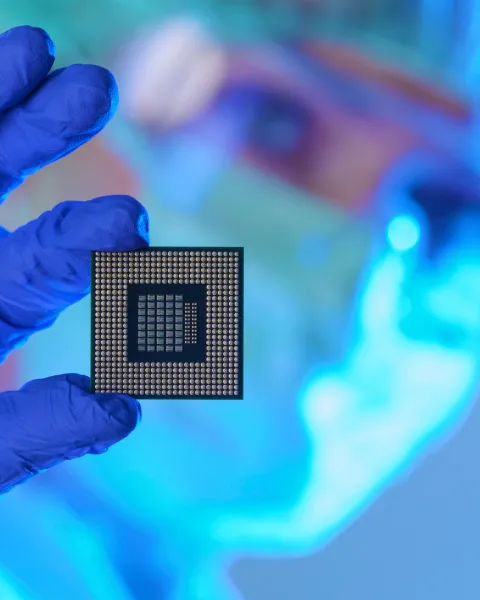As the United States carries out projects funded by the Infrastructure Investment and Jobs Act, the Inflation Reduction Act, and the Creating Helpful Incentives to Produce Semiconductors (CHIPS) Act, the manufacturing industry must prepare to face staffing challenges in meeting future demand. Immigration can help address the demand.
The laws provide $550 billion in investments for specific infrastructure projects, $369 billion in climate incentives, and $52.7 billion for the production of semiconductors, respectively. However, immigration legislation also will be needed to help address workforce shortages that are expected to be exacerbated by the increased market demand.
To meet clean energy, infrastructure, and increased domestic manufacturing goals, a strong talent pool is needed. The manufacturing industry faces a growing shortage of science, technology, engineering, and math (STEM) talent. Advocates have proposed “high skills immigration” legislation to address the need. While recent polling suggests a majority of Americans support high-skilled immigration, prior legislative efforts have failed, including a measure that was ultimately left out of the CHIPS Act that would have exempted from numerical visa caps foreign nationals with STEM degrees from U.S. institutions.
The manufacturing industry requires both highly skilled and trade skilled workers to power its growth. Advocates have long argued that comprehensive immigration reform is needed, but there are specific policy changes or amendments that may be enacted to meet a growing demand for productive workers.
Possible immigration policy changes, amendments, or executive actions that could address the reality of global competition for top talent without requiring an overhaul of the Immigration and Nationality Act, which contains the most important provisions of current U.S. immigration law, include:
- Increasing caps on certain visa categories, such as the nonimmigrant H-1B and H-2B visas and immigrant visa classifications.
- Adding new H-1B “cap-exempt” classifications, which would permit additional employers, such as employers working in green technology or federally funded infrastructure projects, to file H-1B petitions without being subject to the annual cap.
- Permitting additional F-1 work authorization extensions for students whose employers have registered them in the H-1B lottery but who were not selected.
- Adding trade union apprenticeship programs to the J-1 visa program.
- Expanding the existing humanitarian parole program and other forms of humanitarian relief to allow employment authorization incident to status.
- Creating a cap-exempt nonimmigrant visa classification, similar to the “Schedule A” exemption list of occupations for immigrant visas, for occupations where there are not sufficient U.S. workers, such as trade occupations.
- Expanding the existing Schedule A list of occupations to include additional occupations where there are not sufficient U.S. workers, such as trade occupations.
- Increasing hiring at U.S. Citizenship and Immigration Services and Department of Labor to address processing backlogs.
- Expanding categories of eligible dependent visa holders permitted to work, as well as allowing employment authorization incident to status.
Policymakers must soon address the need for high-skilled talent to increase the country’s labor supply. The current immigration system can be modified without significant legislative action to provide a more balanced approach to labor needs.
Please contact a Jackson Lewis attorney with any questions.
© Jackson Lewis P.C. This material is provided for informational purposes only. It is not intended to constitute legal advice nor does it create a client-lawyer relationship between Jackson Lewis and any recipient. Recipients should consult with counsel before taking any actions based on the information contained within this material. This material may be considered attorney advertising in some jurisdictions. Prior results do not guarantee a similar outcome.
Focused on employment and labor law since 1958, Jackson Lewis P.C.’s 1,100+ attorneys located in major cities nationwide consistently identify and respond to new ways workplace law intersects business. We help employers develop proactive strategies, strong policies and business-oriented solutions to cultivate high-functioning workforces that are engaged and stable, and share our clients’ goals to emphasize belonging and respect for the contributions of every employee. For more information, visit https://www.jacksonlewis.com.


